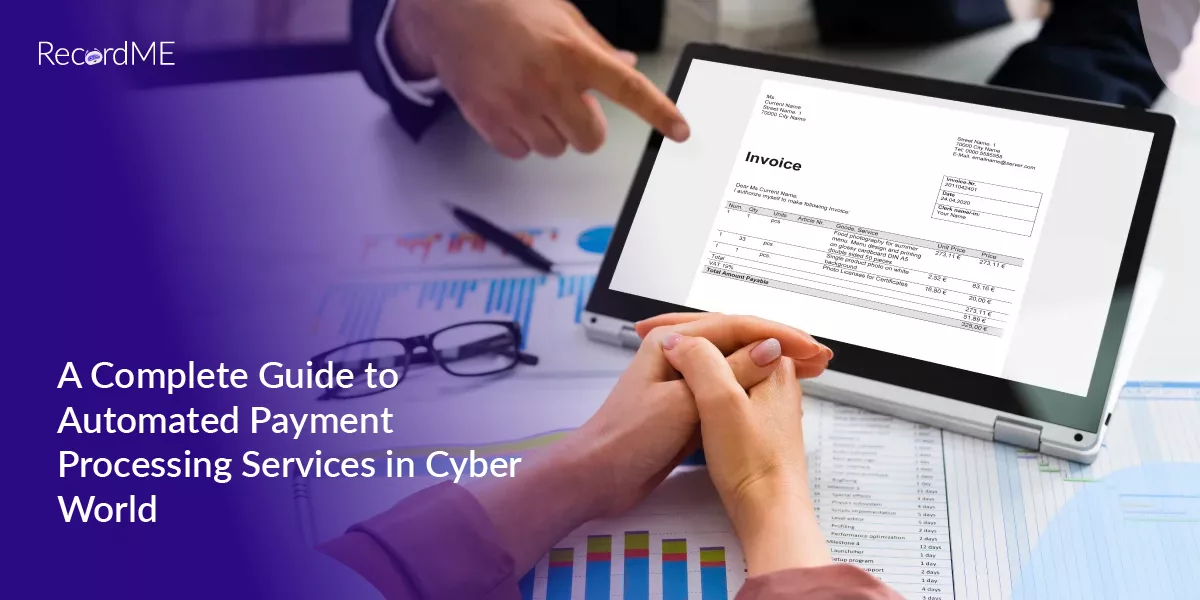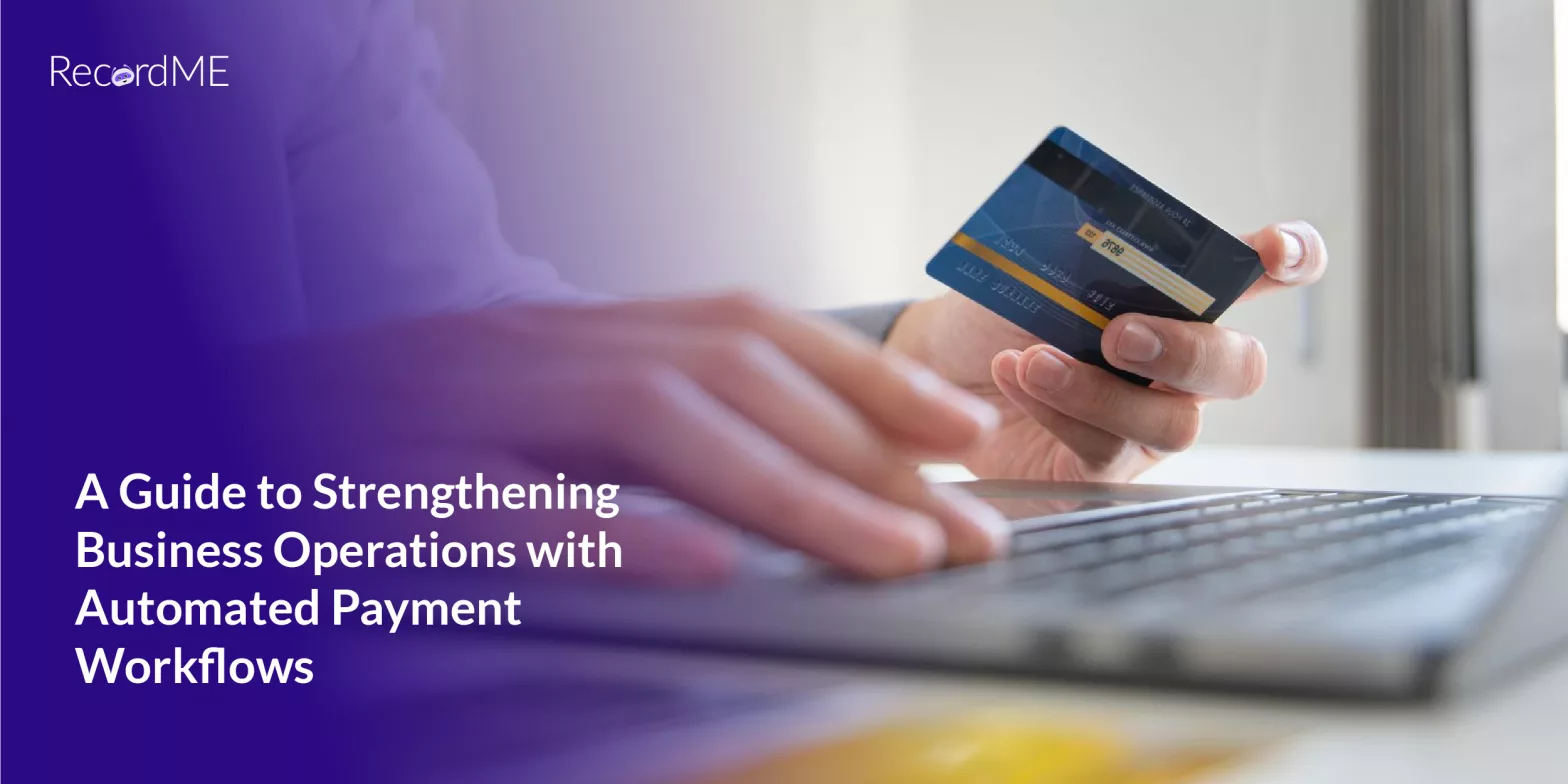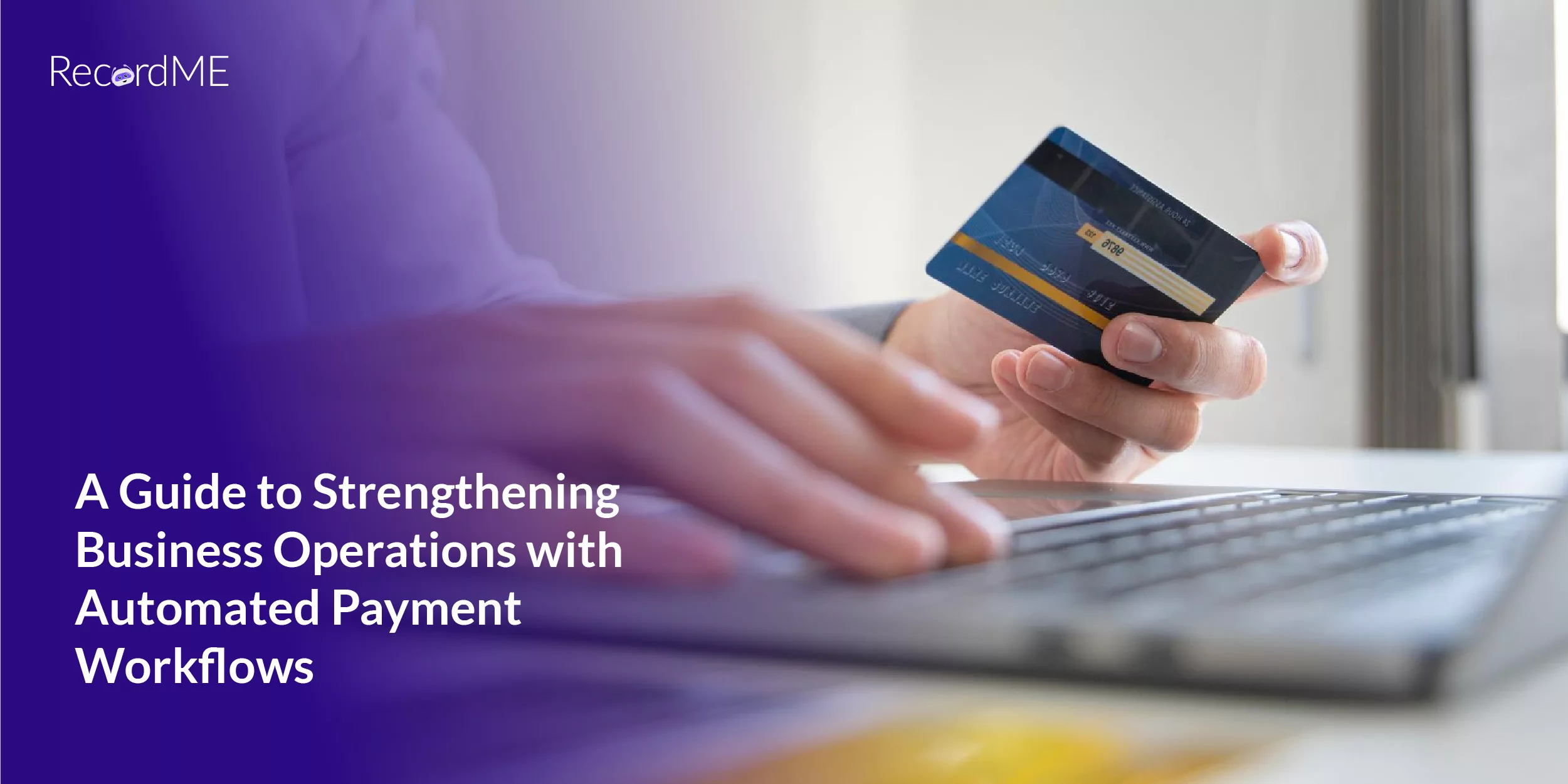Benefits of Automated Payment Processing to Improve Accounting Tasks

In This Post
Automate finance and accounting services refers to the application of technology to simplify tasks related to accounting, such as account reconciliation and invoicing. Antiquated manual procedures can entirely stop an AP workflow. During the approval process, invoices may disappear or become stuck. Furthermore, if the system receives accurate information, payments might be delivered on time or in the right amounts. Additionally, firms must wait for payment; according to 39% of owners and decision-makers, this may force them to cut expenses. Thus, organisations can save money, improve supplier relationships, expedite workflow, and even lower fraud by automating payment processing.
Payment Processing Automation – A Comprehensive Overview
Automation of the billing process refers to the use of software to expedite the cash flow of suppliers. Online payment processing generally involves transferring the money directly in addition to automating the invoice approval procedure. These automatic payments could be made via check, virtual card, cross-border, or some other way.
Accounting automation software speeds up vendor payments and streamlines the AP workflow by removing tedious and inaccurate manual AP operations. Employees at AP are then free to work on more complicated and creative projects.
How Do Businesses Automate Payment Processing?
It is ideal for automating payment processing techniques as a part of a more extensive AP management solution. Not only does end-to-end AP automation streamline invoice approval, but it also transforms payment authorisation. Adopting online accounting software or a platform that can manage all related processes is typically necessary for this. Moreover, businesses that use the automated payable channels experience an 81% decrease in payment processing and a 73% increase in payment processing.
Automation may entail incorporating procedures into the software to grant transactions at the payment authorisation stage. In a manual procedure, the authoriser selects which payments to release, retain, or reject once the AP manager submits a collection of them. One of the most significant obstacles in the manual procedure can be created if the person releasing the money is outside the office, as this can extend the payment period.
With automation, approvers working from home, the office, or the road can accept or reject an invoice payment from any device. The payment authoriser can also plan payments, stretching them out to the due dates for holding within cash or paying early to get a discount.
Approved bills are scheduled and sent out during the automated payment processing execution phase. The invoice is closed after payment is received and the information is updated back into the accounting system. Furthermore, the invoice is linked to all payment approval records so that anyone requiring a future lookup on the transaction may locate every relevant information in one location.
What are the Perks of Automated Payment Processing?
Every finance team’s primary duty is to oversee the company’s transactions and manage supplier or vendor payments. However, manual procedures are not only laborious and time-consuming, but they are also very mistake-prone. Repetitive errors can have severe consequences for businesses, ranging from missed or delayed payments to dissatisfied suppliers. In case they need clarification about the necessity of automating payment processing, let them know about these five compelling reasons.
1) Save Time and Eliminate Manual Errors
It goes beyond just stating that processing payments manually is time-consuming. There are many steps involved, such as approval, reconciliation, data entry, and verification. Mistakes are possible at any point, and companies may only find out once it’s too late. Why leave that up to chance, anyway?
Businesses that automate their operations help them to eliminate the need for human data entry. This significantly lowers the possibility of error because sophisticated algorithms will detect them that even seasoned workers will unavoidably overlook. Trustworthy automated payment processing systems will interface and synchronise the company’s financial data, including bills, payments, and invoices, with its accounting software. Moreover, this saves a lot of time.
2) Improve Cash Management
Automated payment processing improves cash flow management, which is crucial. Businesses may monitor payments and alter financial strategy with real-time cash flow and expense data from automated payment software. In addition, 64.4% of SMBs use softwares to automate their financial tasks.
Organisations may plan and schedule payments with an automated billing system, so there’s a chance they will always get one. In the end, it improves the company’s relationship with the client by avoiding companies that have unpaid bills.

3) Increase Security and Compliance
Mistakes in manual payment procedures pose safety and compliance risks. Payment accuracy and security should never be compromised. Therefore, automation can assist organisations in avoiding fraud and errors.
An automated payment system can also help with internal and external policies. Thus, it allows firms to develop approval and compliance processes for purchases.
4) Strengthen Vendor Relationships
Processing payments automatically fosters and preserves the business’s connections with its suppliers. A firm must pay its valued vendors on time. Moreover, if they have a solid system in place, firms can meet and even surpass their expectations with ease.
Making quick payments will help businesses negotiate more favourable and flexible payment terms with vendors, which can reduce overall costs. This is just a personal (but practical) perspective.
5) Reduce Cost and Improve Efficiency
Automation makes meeting payment deadlines, particularly early-pay discount time frames, easier, lowering costs. Companies can avoid late fines by paying on time. Moreover, automated tasks eliminate manual labour costs. Additionally, check payment printing and shipping charges are eliminated.
Online payment processing automation lets organisations keep significant amounts of capital until they need it to pay whilst extending their financial resources. Virtual cards may offer rewards to boost cash flow.
6) Pay Invoices More Quickly
Automated payment processing speeds up the payment of bills in two ways. Automation streamlines the approval process, speeding up invoice receipt and payment. Second, most automatic payments are electronic, so vendors get money faster than checks in the mail.
Let RecordMe Help You
Tired of manually conducting payment processes daily? RecordMe’s payment processing service eliminates error-prone and inefficient manual processes, giving businesses and individuals a complete solution. Companies benefit from automated payment systems for proper financial management.
Companies gain financial stability and a competitive edge with RecordMe, an automated accounting platform that increases operational efficiency, accuracy, and security. Manages corporate financial flow or data entry. Business growth is unstoppable with good cash flow and strategy.
Are you unsure how automation can help you succeed online? Get in Touch with Us!
Frequently Asked Questions (FAQs)
Q1) What are Payment Approvals?
Ans) Payment approval processes are standard in business to guarantee that every instalment is verified and approved by an in-company party. This prevents internal fraud and accidental payments.
Q2) How to Approve an Invoice for Payment?
Ans) To prevent payment processing delays, it is necessary to evaluate and approve invoices. The standard procedure for approving invoices begins when the business gets an invoice from a supplier. The individual in charge of purchasing the item or service then reviews the invoice.




